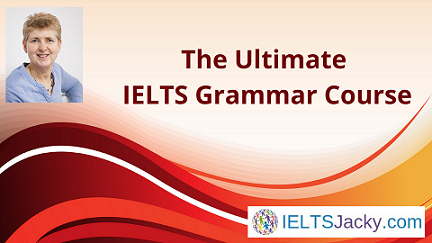IELTS
Listening Online – Sample 16
Listen to this travel guide to Copenhagen and complete the quiz below.
Then, scroll to the bottom of the page for the answers and a transcript of the recording.
Copenhagen
Quiz
1. Which Danish coast is Copenhagen
situated on?
a) west
b) east
c) south
2. Which country does the Oresund Strait separate Denmark from?
a) Norway
b) Finland
c) Sweden
3. Which Danish word describes the ambience of the city?
a) tak
b) hygge
c) farvel
4. What is a recommended way to see Copenhagen?
a) by bike
b) on foot
c) on an open-top bus
5. One of the most famous landmarks in the city is:
a) the statue of a dolphin
b) the statue of a mermaid
c) the statue of Hans Christian Andersen
6. Who lives at Amalienborg?
a) the Prime Minister
b) the Royal Family
c) the President
7. When did Tivoli Gardens open?
a) 1843
b) 1943
c) 1813
8. What attraction in Tivoli Gardens is the oldest in the world?
a) the Star Flyer ride
b) the outdoor theatre
c) the wooden roller coaster
Answers & transcript
Scroll down for the answers and recording transcript.


Answers:
1 b east
2 c Sweden
3 b hygge
4 a by bike
5 b the statue of a mermaid
6 b the Royal family
7 a 1843
8 c the wooden roller coaster
Transcript:
Copenhagen
Copenhagen sits on the
east coast of Denmark, a country that consists of the Jutland Peninsular and a
series of small islands. Separated from Sweden by the Oresund Strait, this
nordic city is Denmark’s capital. With cutting edge restaurants set amidst
cobblestone streets and picturesque canals, Copenhagen is a perfect combination
of fairytale magic and modern-day cool.
There is no better way to understand this city’s charm than with the uniquely Danish word, hygge which describes a cosy and soulful state of mind. It is a word that you can’t quite put your finger on it but you’ll know it when you feel it and in Copenhagen, hygge is everywhere. Hygge can be found in the candles that brighten the windows and the warm sense of enchantment that fills the streets. It can be found in the colourful wharfs, the city’s beautiful gardens and as the sun goes down, it can even be found in one of Europe’s oldest theme parks.
One of the very best ways to enjoy Copenhagen is the way most locals do, by bicycle. The city is laced with almost 250 miles of bike lanes and cycling is a way of life for all ages. Head to Nyhavn, a 17th century waterfront and canal district that is full of colour, and character with its many bars and cafes. Enjoy a meal at one of the restaurants or grab a drink and watch the boats glide by. Visit the little mermaid, one of Copenhagen’s most recognisable characters. Created from a story by Hans Christian Andersen, she is just a short stroll away from the wharves. This statue has been staring longingly toward the shore for over 100 years, hoping to catch a glimpse of her beloved prince.
Discover real-life royalty at Amalienborg, home to the much-loved Danish Royal Family. Catch the changing of the guard ceremony which takes place every day at noon. For more fairy-tale magic, head to the Tivoli Gardens. This park has delighted generations since 1843 and holds a special place in Copenhagen’s heart. Take a ride on one of the oldest operational wooden roller coasters in the world or spin through the sky on the towering Star Flyer. Watch a pantomime, ride a dragon boat or enjoy the Tivioli’s stunning gardens. For a little more nature, take a picnic and enjoy Copenhagen’s many other green spaces. Visit the botanical gardens, which are close to the centre of town and famous for its historic glasshouses.
Hip, charming or just plain magic, however you define Copenhagen it is easy to understand why it regularly tops the list of the world’s happiest cities. Like the fairy dust, that seems to be in the air here. Hygge may be hard to define but it’s easy to feel. So slow down, relax and enjoy the beautiful moments this city has to offer.
Source: Expedia Travel Guides - Copenhagen
Like this page?
More IELTS Listening Practice Samples
Here are a few examples of the many practice activities I've created:
Sample 1 – The science of cotton
Sample 2 – Why perfect grades don’t matter
Sample 3 – The loathsome, lethal mosquito
Sample 4 – Will there ever be a mile-high skyscraper?
Sample 5 – The history of African-American social dance
Sample 6 – Families - The generation gap
Sample 7 – Greeting the world in peace
Sample 8 – How cigarettes affect the body
Sample 9 – How do oceans currents work?
Sample 10 – How to make red lentil fritters
To see the full list of practice samples, click this link:





